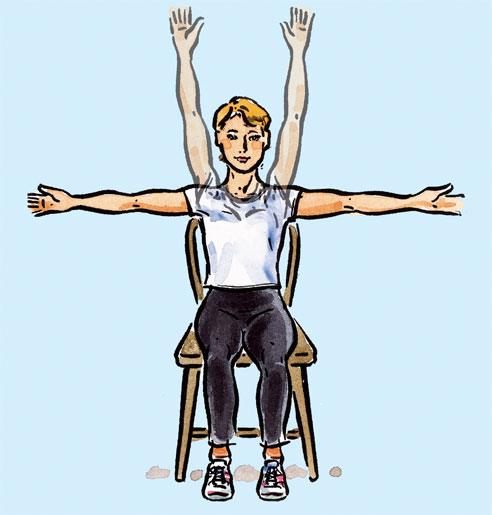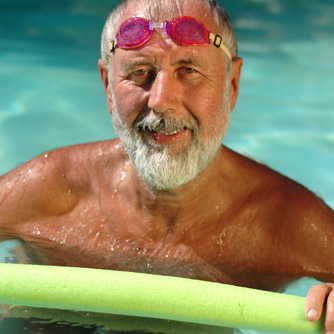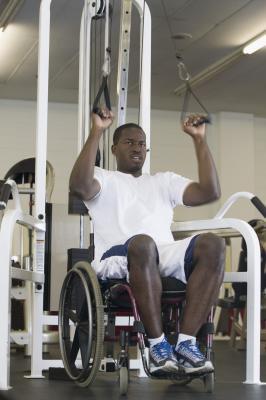
What does it all mean?
Why is exercise important?
If your doctor told you that doing one thing for approximately 30 minutes per day, 5 days per week would significantly reduce your risk of:
Early death, coronary heart disease, stroke, high blood pressure, type 2 diabetes, breast and colon cancer, falls, depression.
Would you consider incorporating it into your life? It would cause no harm, only benefits, including health and financial gains. Would you do it? By now it is no surprise that this 30-minute per day “thing” is Physical Activity!
Watch this video, it is worth every minute:
How much?
Some physical activity is better than none. For major health benefits the CDC , the American College of Sports Medicine, the U.S. Dept of Health & Human Services, and the American Heart Association recommend that adults:
- Engage in at least 150 minutes per week (i.e. 30 minutes, 5 days per week) of moderate-intensity aerobic activity. Moderate-intensity is a level that elevates the heart rate, one becomes breathy (able to talk, but not necessarily sing a favorite song), and sweaty.
- Participate in strength training at least 2 days per week. Strength training uses weights, or one’s own body weight, to exercise the major muscles of the body (legs, hips, back, chest, abdomen, shoulders, and arms).
New to exercise? That is okay! Gradual progression of exercise frequency, total time, and intensity is recommended to reduce risk of injury. Start small, perhaps 5 minutes per day, and work up towards a new goal each week.
What?
A gym membership is not required for physical activity. Vigorous walking is considered moderate intensity, as is heavy gardening (shoveling, raking), bike riding, water aerobics, or pushing a lawn mower. Chair exercises can also be done energetically enough to get one’s heart pumping.
Strength training includes lifting weights, working with resistance bands, using one’s own body weight (sit ups, push ups, squats, lunges), and yoga.
Older adults should also incorporate balance activities into their routine to reduce risk of falls. Examples of balance activities include: standing on one leg (with something nearby to grab for steadiness), walking backward or sideways, or standing from a sitting position repeatedly.
When?
Anytime! 30 minutes per day can be a big commitment, but this can be broken down into smaller 10 minute segments, 3 times per day. Simply becoming more active, even if less than 10 minutes at a time, can yield benefits. Use simple tactics such as parking at the back of the parking lot, skipping the elevator and taking the stairs, and speaking in person to a colleague instead of email or phone call.
Remember!
Anyone and everyone can be more physically active, and can improve their health. If you are an adult with a disability, regular physical activity can provide you with the same important health benefits. The National Center on Physical Activity and Disability can provide additional information and guidance.
The VA offers the MOVE! Weight Management Program to all Veterans who want to improve their health through weight loss; speak with your PCP for more information, or to join the program. Visit with a Registered Dietitian to discuss nutrition and exercise help and goal setting. Speak with your healthcare provider before beginning any new physical activity routine for guidance and clearance.
Jessie Furman is currently a dietetic intern at the Memphis VA Medical Center.
Topics in this story
More Stories
Soldiers' Angels volunteers provide compassion and dedication to service members, Veterans, caregivers and survivors.
Veterans are nearly three times more likely to own a franchise compared to non-Veterans.
The Social Security Administration is hoping to make applying for Supplemental Security Income (SSI) a whole lot easier, announcing it will start offering online, streamlined applications for some applicants.











Walk during your break, do pushups by leaning on your desk, do tai chi during lunch, do stretches at your desk, at the copy machine, etc !!!
Well done!
Thank you, Laura!
This needs to be flashing on Bill Boards all through the cities where we blame all our excuses of “Urban Life”. Very well written in simple language.
Thank you, Baljit.
Small changes in our daily lives can really make a difference immediately, and in our long-term health. Physical activity is accessible to all, but sometimes we need a little help understanding the benefits. I hope this article has provided some clarity and inspiration to others!